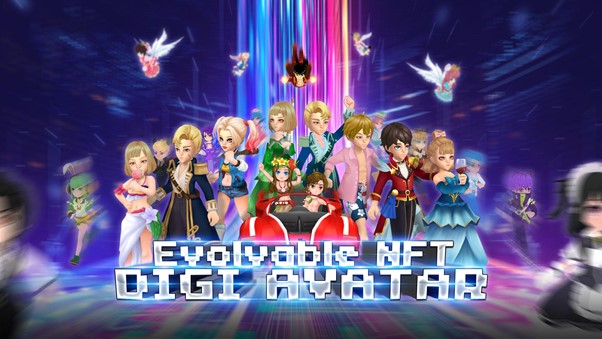Metaverse is a term we’re hearing more and more these days, not least since Facebook announced it was changing its name to Meta and transitioning into “a metaverse company.” A concept that refers to immersive virtual environments where users can socialize, play, shop, and even earn, the metaverse could represent the future of many industries, from gaming and e-commerce to social media.
The term metaverse is a portmanteau of meta (meaning beyond) and the universe, and intrepid technologists are busy fleshing out just what this burgeoning collective space will look like; and how we will navigate it. Although it’s early days, signs are that wearable AR/VR devices (headsets, goggles) and blockchain-based digital assets will play major roles, with several projects already at an advanced building stage. One notable example is DigiNation, a metaverse with personal identity at its heart.
Delving Into DigiNation
Built on the Ethereum blockchain, DigiNation is an all-encompassing ecosystem that comprises an extensive virtual environment, playable characters (represented by DigiAvatar NFTs), a 3D design studio called DigiMaker, a web gallery named NFT Live, and an OpenSea-esque integrated marketplace known as DigiMarket.
Described as a “Web3 metaverse featuring NFT-based innovation,” the fast-growing venture is currently gearing up for its public mint on November 15, whereupon up to 950 unique DigiAvatar NFTs will be made available on a first-come, first-serve basis. Another 74, meanwhile, will be allocated to those who have contributed to the community in its formative stages.
As in the famous RPGs, ‘players’ are represented by avatars – the aforementioned DigiAvatars, to be more specific. In the DigiNation metaverse, these NFTs are in essence the indigenous citizens. And these unique personas – which can be minted for 0.08 ETH plus gas – can be customized according to the player’s activities in the game.
This latter feature is about more than equipping your hologram with a cool weapon or fetching hat, though: in DigiNation, avatar NFTs have multiple dynamic parameters including Experience, Level, Contribution, Fame and Fertility, with each improving as the player becomes more successful in the metaverse. Later, a user might elect to sell his advanced DigiAvatar on the DigiMarket – or trade it for a different NFT that is appealing in its own right.
DigiNation calls this identity-focused concept ‘MetaCreation’. The idea being that DigiAvatars represent players’ unique data, with everything from their behavior and credit information recorded and tokenized on-chain via an NFT, and updated via smart contracts.
With interoperability being a stated goal of the DigiNation team, the hope is that NFTs can access both the DigiNation metaverse and others available on disparate blockchains. Similarly, third-party NFTs can be imported via NFT Live. For example, it will be possible to import a 2D picture NFT such as a CryptoPunk – which DigiNation will convert into an animated 3D avatar for use in the game.
Like popular NFT marketplace OpenSea, the integrated DigiMarket provides a means by which players can showcase and trade all of their assets, including those created with DigiMaker and those imported from elsewhere via NFT Live.
Gaming in the DigiNation
It’s fair to say that DigiNation is swimming in NFTs; aside from characters, non-fungible tokens in the game include collectible items, properties, art, even songs that play when you traverse a certain pocket of land. Games and events are a big part of the landscape, too, with DigiAvatars able to compete in various quests, missions and battles in return for rewards.
Single and multiplayer games can be created by players using DigiMaker’s drag-and-drop toolkit or integrated into the metaverse by professional gaming studios.
Speaking of games, the platform will next month launch a multiplayer online tournament called Crypto Survivor, a sort of amalgam of the TV series Survivor and Squid Game. While only whitelisted NFT holders will be eligible to participate, the showcase could serve as an interesting demonstration of DigiNation’s potential.
The team behind this particular metaverse project is at pains to point out that they don’t want to go it alone. Instead, they envisage a collaborative, community-powered virtual world where NFTs can travel between metaverses. This is why the NFT Live program was created: to empower other NFT projects to join the DigiNation world, and in doing so give those tokens greater utility.
Opening such doors could of course be a boon for DigiNation: in allowing NFT holders to interact with their metaverse, they set the stage for them transacting in the DigiMarket, minting new NFTs in DigiMaker, playing games, or just exploring what the world has to offer.
For now, that’s all hypothetical: the only important date on the calendar is November 15, when the public mint sees hundreds of DigiAvatars make their way into the world. After that, it’s down to DigiNation to make their metaverse a rich tapestry that players can’t resist.
Credit: Source link












































































































































